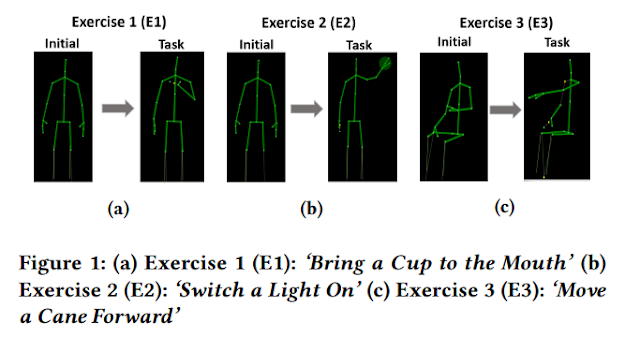An Exploratory Study on Techniques for Quantitative Assessment of Stroke Rehabilitation Exercises
Technology-assisted systems to monitor and assess rehabilitation exercises have an opportunity of enhancing rehabilitation practices by automatically collecting patient's quantitative performance data. However, even if a complex algorithm (e.g. Neural Network) is applied, it is still challenging to develop such a system due to patients with various physical conditions. The system with a complex algorithm is limited to be a black-box system that cannot provide explanations on its predictions. To address these challenges, this paper presents a hybrid model that integrates a machine learning (ML) model with a rule-based (RB) model as an explainable artificial intelligence (AI) technique for quantitative assessment of stroke rehabilitation exercises. For evaluation, we collected therapist's knowledge on assessment as 15 rules from interviews with therapists and the dataset of three upper-limb stroke rehabilitation exercises from 15 post-stroke and 11 healthy subjects using a Kinect sensor. Experimental results show that a hybrid model can achieve comparable performance with a ML model using Neural Network, but also provide explanations on a model prediction with a RB model. The results indicate the potential of a hybrid model as an explainable AI technique to support the interpretation of a model and fine-tune a model with user-specific rules for personalization.
Publication:
Lee, M. H., Siewiorek, D. P., Smailagic, A., Bernardino, A., & Bermúdez i Badia, S. (2020). An Exploratory Study on Techniques for Quantitative Assessment of Stroke Rehabilitation Exercises. Proceedings of the 28th ACM Conference on User Modeling, Adaptation and Personalization, 303–307.



Comments